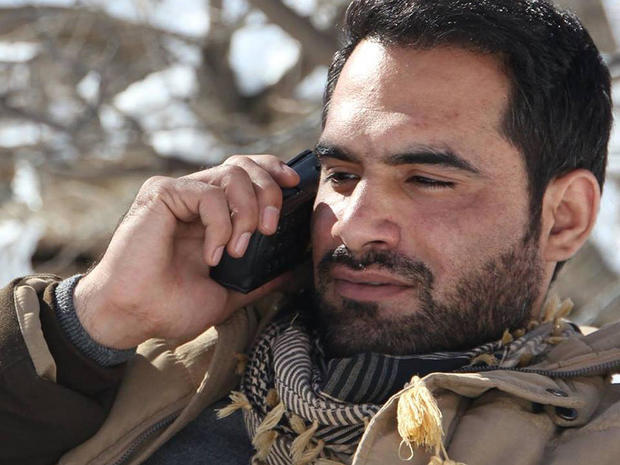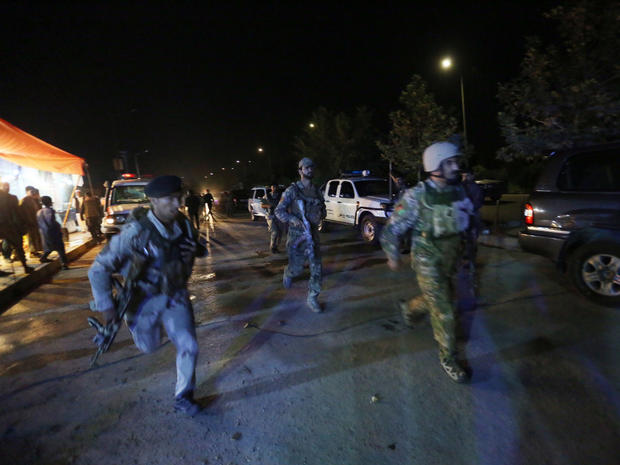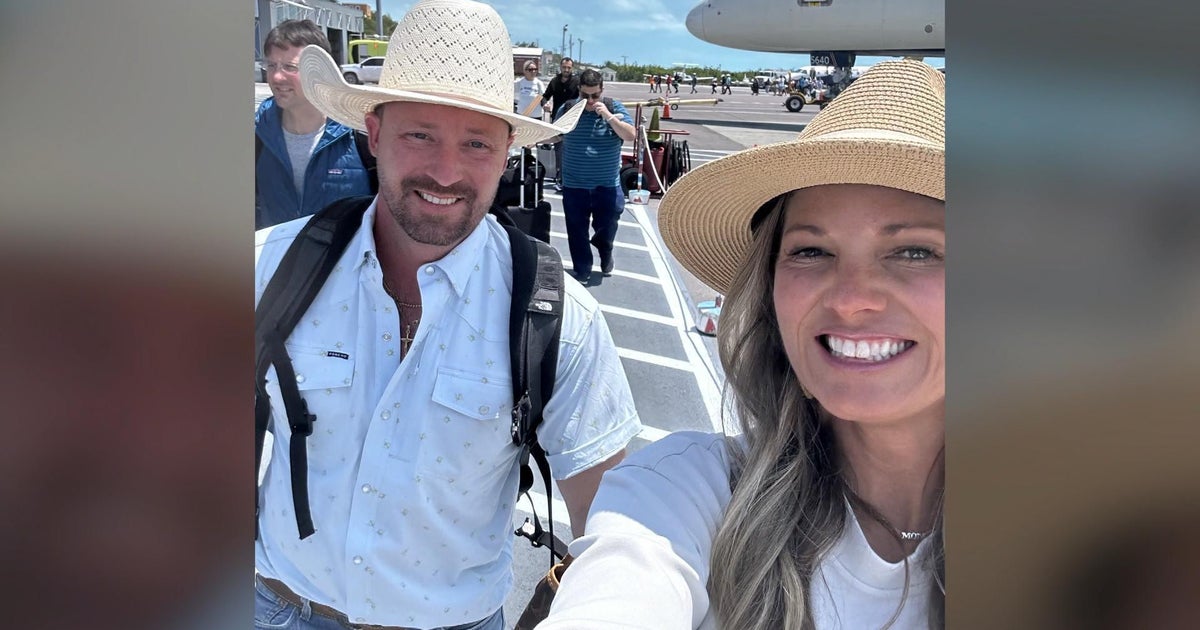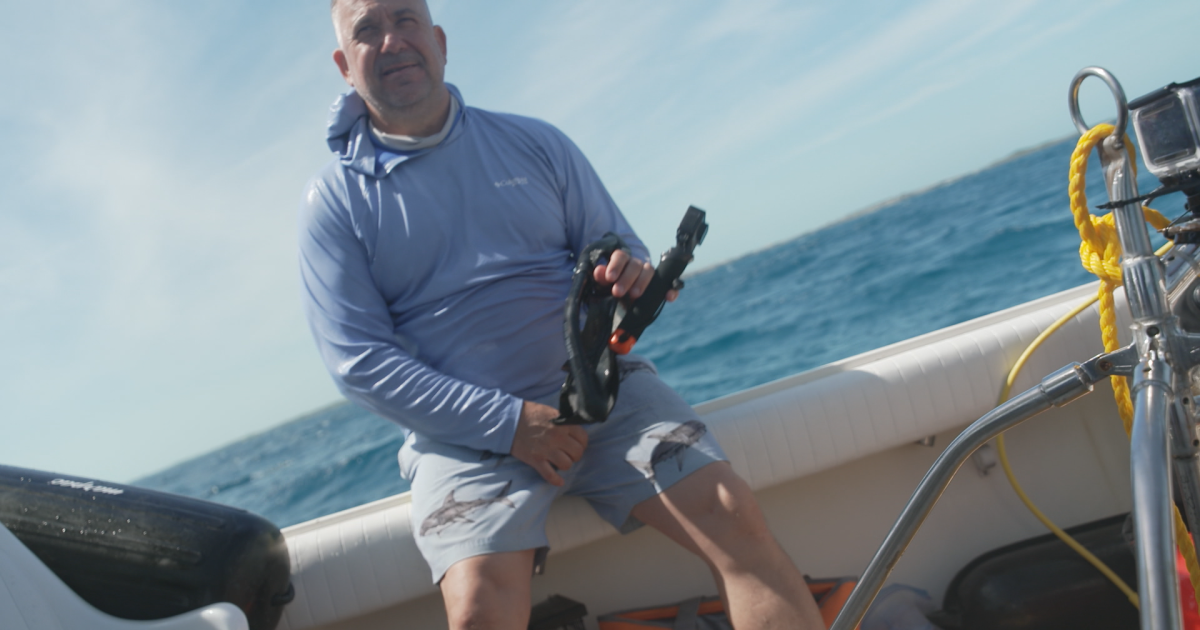Escaping a Taliban siege on my "second home"
Ahmad Mukhtar is CBS News' producer in the Afghan capital. After years covering the violence that has hounded his country following the U.S.-led invasion to oust the Taliban, he narrowly avoided becoming a victim of it himself.
KABUL -- A week ago, I was at the American University of Afghanistan, in Kabul, talking to my friend and classmate Hassibullah Roshan about switching classes. We were heading together to see a professor in the faculty building.
As we walked, we heard gunfire very close to us. We ducked our heads and started moving faster. Seconds later came a powerful explosion which lit up the whole campus. We rushed into the Azizi building.
I've covered too many terrorist attacks in Kabul. Normally, when there's a suicide attack or militants launch a siege, we rush to the scene, try to get as close as possible, and report what we can see and hear. But last Wednesday was the first terrorist attack to hit the American University -- virtually my second home -- and this time I was running for my life.
Hassib and I rushed into a corridor of the Aziz building and joined other students. A female student was crying. I tried to calm her down, reassuring her that everything would be okay.
Everyone was trying to get out of the single door at the northern end of the corridor. I followed Hassib and we made it out of the building, ending up in front the cafeterias. Hassib stopped for a second or two. We were confused. What should we do? Where should we go?
We followed other students and reached a small outdoor staircase leading up to one of the security watchtowers on campus. There were about 100 of us, and everyone was trying to be first to climb the tower. That's where I lost Hassib. Finally, it was my turn to climb the stairs.
I got up to the watchtower and saw the guard still sitting inside, clutching his weapon, with a group of students around him. They were all talking very quietly. One of the other students said there was a way out at the back of the security tower.
My Uncle Zeewari called my cell phone. I answered and told him our university was under attack and that I was trying to escape, then hung up. He later told me he had heard an explosion and was calling to check on me. We always check on each other when there is an attack in the city.
We rushed to the back of the tower and again everyone jostled for position, eager to jump. When it was my turn I stepped to the edge and looked down to the ground below. It was very scary. I dropped my backpack first, then followed, trying to land as softly as possible.
Back on the ground, I didn't know which way to go. I joined a group of students who had escaped from one of the university's emergency exits. We started running together.
We kept running for our lives. I could hear bullets flying above us and I was worried one of them would hit me or one of my friends. It seemed like the attackers were following us.
As we ran I grabbed my phone and first called my father. I was breathing very fast as I told him our university was under attack, but that I was out, so don't worry. I knew my friends would hear the news on local TV and would be worried.
The second phone call I made was to the CBS News London bureau. Again, I said the university was under attack but that I was out safe.
We reached a residential area next to the campus and I saw people coming out of their homes. They offered to take us in until the attack was over. Some stayed, but I continued toward the main road with others.
I couldn't find Hassib. I tried to call him but couldn't find his number. Then he called me, saying he'd injured his hand jumping from the tower in the perimeter wall and had taken shelter in a house.
I reached the main road, stopped a taxi, and asked the driver to take me to my uncle's house where my parents were waiting for me.
That first night I was too busy reporting on the story for it all to sink in. I didn't sleep.
The second night, my uncles and cousins came to our house and we sat up until morning, sleeping for only a few hours. Nightmares started the third night, when I was alone again.
I heard a gunshot outside, which is very normal in Kabul, but this time it frightened me. I told myself the attackers were coming to my house to kill me.
I tried to go back to bed, but paranoia had set in. Everything looked strange and frightening.
I went downstairs to the floor my parents and brother were on and asked him to give me his spot, so I wouldn't feel alone. I couldn't stop thinking the militants were following me, and might appear any moment to kill me.
When I closed my eyes, I saw the bright yellow light of the explosion that lit up the campus. I heard the blast, and my classmates' screams. The faces of the university guards, who would often open the gate and let me in when I forgot my ID card, flashed in my mind.
The American University of Afghanistan has several armed guards posted inside the campus and in the perimeter watchtowers. As a student, I never thought terrorists would manage to breach that perimeter.
I believe the attack was well-planned, but in the end, the university administration couldn't protect the students and staff. The university president has a fortified "safe room" in his office, but students and professors have no such option.
Two of my friends, Jamshid Zafar and Zubair, were among the nine students who died that day. One professor, three police officers and two security guards were also killed.
My last class with Zubir was the day before the attack.
I used to tease Jamshid, telling him he would ignore me when girls were around.
"It's not true, brother," he would answer.
Some of the brightest, most talented people in Afghanistan study at the American University -- some of them likely to be the future leaders of this country. But it's also an American university, under the American education system. The attack was a major blow to the identity of both Afghans and Americans here, and it will be felt for a long time.





